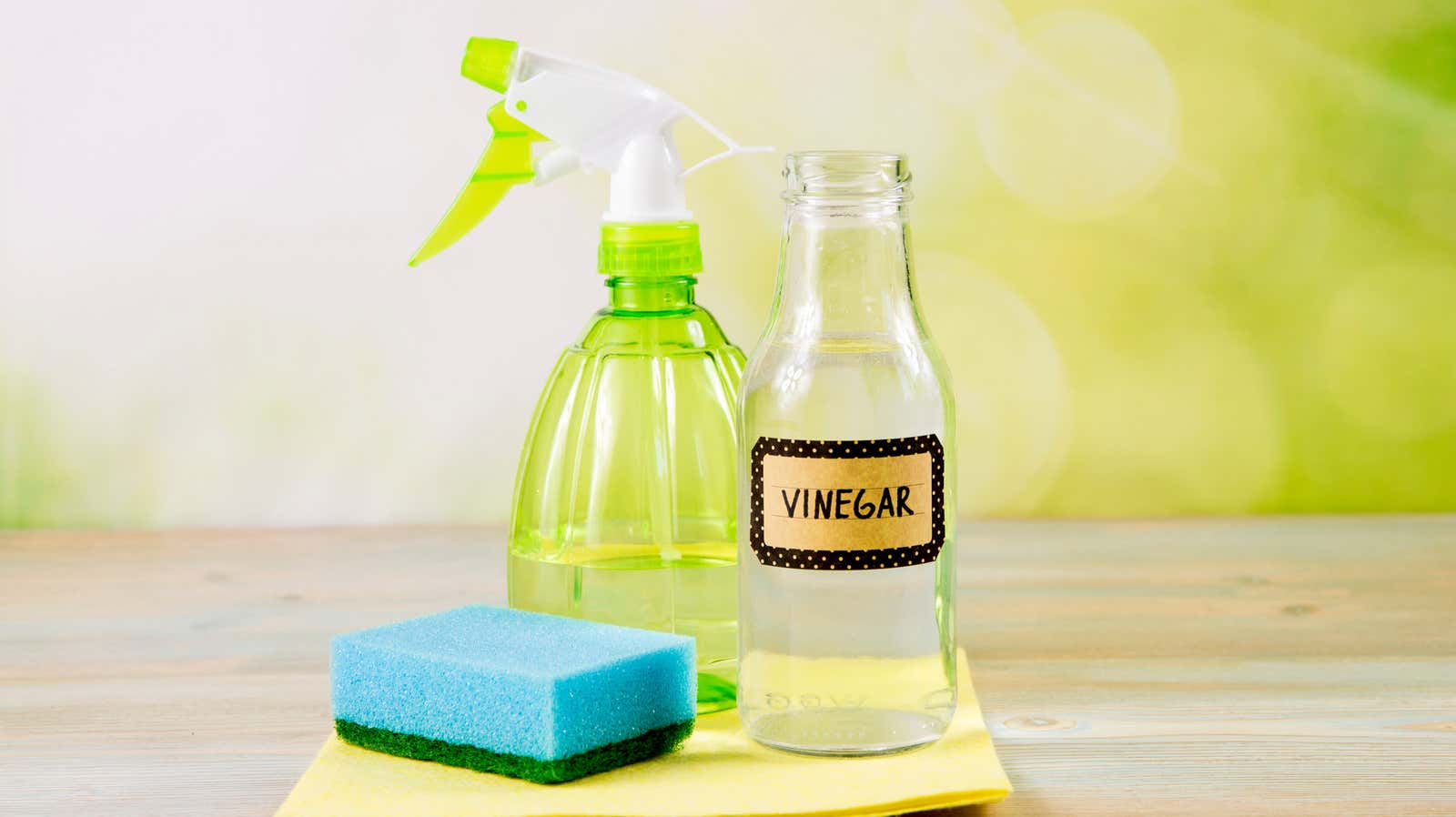What to Never Clean With Vinegar

It’s no secret that we’re a fan of white vinegar for its ability to cleanse, shine, deodorize, and participate in a variety of household tricks. But no matter how strong the sour workhorse is, it can’t do everything. And in some cases, trying to use vinegar to clean up something can only make things worse. Here are six cases where this is the case, courtesy of an article by Georgina Loud of the Daily Express .
Egg stains
Egg stains are harder to fight than they might seem, including the vinegar-bound egg stains. This is because when the acid in the vinegar combines with the egg, it can cause it to coagulate, resulting in a hardened mess, even worse than you started. Instead, according to Loud:
You should lift up the solids with a knife or spoon and mix two teaspoons of dish soap into two cups of water. Blot – do not rub – with a sponge, white cloth, or soft bristled brush until the stain is gone.
Parquet floors
Some people swear that vinegar makes their hardwood floors shiny, but others have found that it spoils the floor. In this case, it’s better to play it safe than sorry, so skip the vinegar and use a cleaner made specifically for cleaning wood.
Irons
If your iron gets dirty or clogged, vinegar may seem like an obvious solution, but it can damage the iron’s internal mechanisms. Instead, turn off the iron completely to cool it down, then follow the manufacturer’s instructions for cleaning.
Stone floor tiles
Indeed, vinegar can damage any natural stone surface in your own hands, not just your floor tiles. This is another of those situations where the safest option is to use a dedicated stone cleaner.
Exceptionally stubborn stains
If you’re dealing with a grass, ink, or wine stain that won’t go anywhere, instead of continuing to water or spray with vinegar, try treating the stain with the solution before washing.
Marble and Granite Countertops
Again, the acid in the vinegar can damage your marble or granite countertops, potentially ruining their smooth surfaces and causing discoloration. This time, you’ll need a mild dish soap diluted with warm water to get the job done safely.